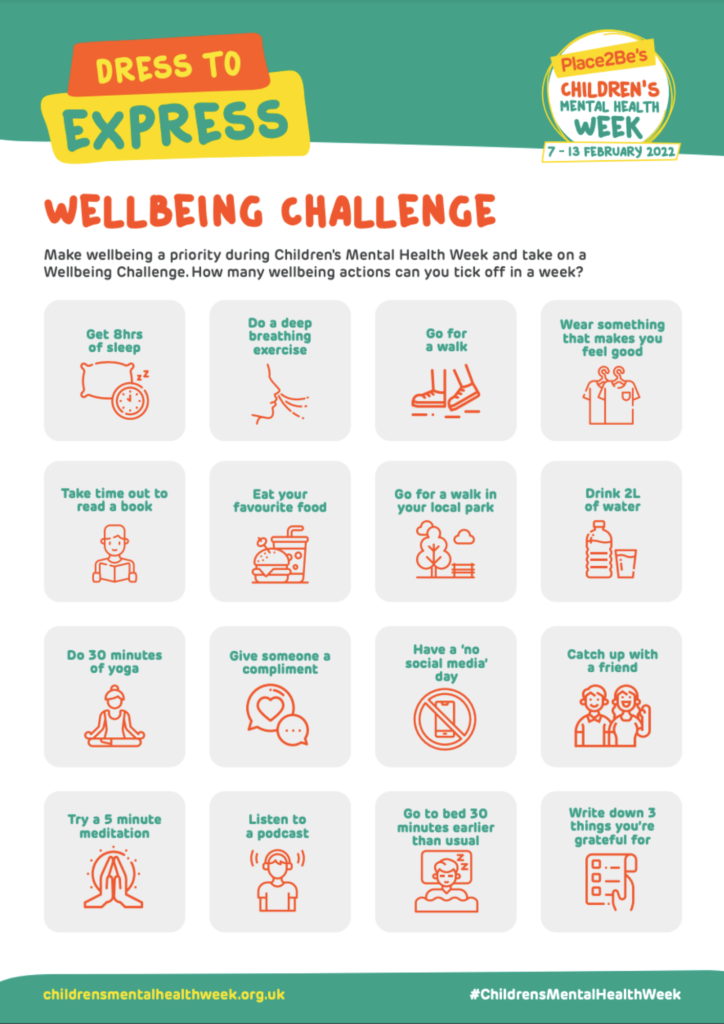Here at PK, we are passionate about inspiring potential in every child and, just like anyone who works with young people, we are deeply moved by the staggering rise in child mental health statistics. According to The Children’s Society, the likelihood of young people having a mental health problem has increased by 50% and now, 5 children in a classroom of 30 are likely to have a mental health problem.
So, We want to help you become more aware of the challenges young people face today, help you appreciate how their world has changed since the start of the pandemic and give you practical ways to learn about how to support them.
Conducted by The Children’s Society, The Good Childhood Report (2021) shares some interesting but worrying figures:
- 1 in 9 children are unhappy with their school
- 7% of young teens are not happy with their lives
- 28% of young people were not optimistic or felt indifferent about the future
A youth friendly version of the report is available online and can be used as a conversation starter in your classroom or as a worksheet to encourage students to think about their own wellbeing. It’s a great way to check their knowledge of current issues and equip them to support their peers, while making sure that they know where to access support, should they need it.
The Good Childhood Report: Youth Version
The Children’s Society: Young People’s Guide to Stressful Situations
The Good Childhood Report: Full
What can I do?
First and foremost, you need to be aware of your school’s safeguarding protocol. Do you know who your Safeguarding lead is and how to contact them? Do you know where your school stores the disclosure forms? If not, make it a priority to find out!
Once you know how to follow safeguarding procedures it’s time to get your young people involved in wider conversations about mental health and wellbeing. Choosing to take 15 minutes of a lesson this week might just be the moment a young person decides to reach out for support. It is also a great opportunity to build vital relationships and create a culture of support. It can be really daunting as a supply teacher or newly qualified teacher to feel confident enough to have these conversations in the classroom; but there are lots of ways to introduce the topic and stimulate thought without getting deep and meaningful with a room of teenagers you haven’t met before! Here’s some easy ideas:
- With KS1 and KS2 you could simply start with a well known story about change – The Hungry Caterpillar or The Ugly Duckling – and talk about how the children might have experienced change in their life, perhaps about what they would like to do in the future and what help they might need to achieve it. Click here for more great ideas for Primary. Click here for Primary Resources
- With KS3-5, Place2be have published some fantastic interviews with celebs sharing their own ‘Growth Stories’. So take 6 minutes to watch one of these as a starter activity and spend 10 minutes discussing your student’s response. Click here for Secondary Resources
- For any age the Wellbeing Challenge is a great way to start conversations. You could put the poster on your classroom wall and print it off for the students to keep in their planners as a reminder! Each day, or week, choose a new challenge to commit to. An easy way to improve your wellbeing and a new opportunity to get to know the students better.
Other resources: Building positive mental health in school
The PK team want to make a difference too, which is why we’re getting behind @Place2Be’s #ChildrensMentalHealthWeek in February 2022; our consultants will be showing their support by raising a few quid in aid of “Dress To Express” so follow us, join in and donate. Here’s some amazing facts we found about how your donations could be spent:
- £16 could pay for a child to speak to a qualified counsellor about their worries in a lunchtime session
- £252 could pay for 4 specialised parent coaching sessions for a parent and child to have together
- £1080 could help fund a full round of one-to-one counselling sessions for 2 vulnerable children







